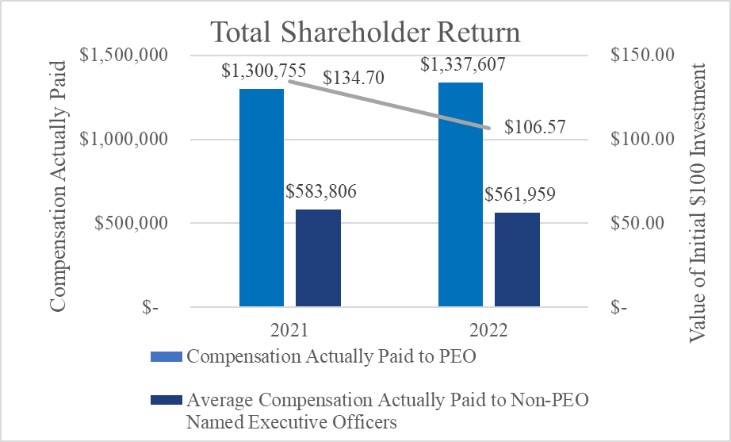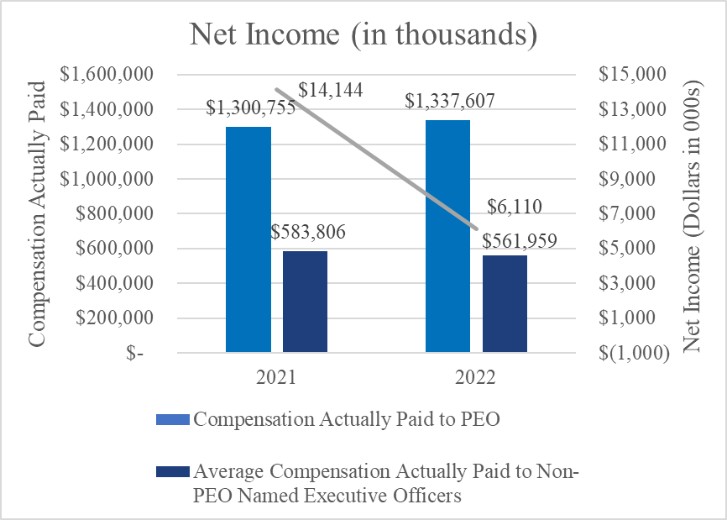PART III
ITEM 10. DIRECTORS, EXECUTIVE OFFICERS AND CORPORATE GOVERNANCE.
The following table and biographical descriptions set forth certain information with respect to the Company’s current directors, based upon information furnished by each director. Following biographical information for each director, we have provided information regarding the specific experience, qualifications, attributes, or skills that have led us to determine that he or she should serve as a director on our Board of Directors.
David R. Bechtel Independent Director
■ Age: 55 ■ Director Since: 2016 | Founder and managing member of Outpost Capital Management LLC, an investment management firm, from 2001; Principal of Barrow Street Holdings LLC, an investment management firm, from 2012-2020; and founder and manager of GP Management LLC, a real estate management and development firm, since January 2011. Mr. Bechtel has many years of general business experience and expertise as a managing member, principal, and head of finance of financial services and natural resource companies that provide valuable contributions to the Board. Committees: ■ Audit Committee (Chair) ■ Compensation and Human Capital Committee ■ Nominating and Corporate Governance Committee |
Frederick M. Danziger (1) Director
■ Age: 83 ■ Director Since: 1997 | Chairman of the Board of Directors of INDUS from June 2019 through March 2020 and, prior to resigning as an employee of INDUS, Executive Chairman of the Board of Directors from 2016 through June 2019; Chairman of the Board of Directors and Chief Executive Officer of INDUS from May 2012 through December 2015; and President and Chief Executive Officer of INDUS from April 1997 through May 2012. Mr. Danziger’s background as a lawyer, his knowledge and experience as the former President and Chief Executive Officer of INDUS, and his extensive experience and knowledge with respect to real estate and real estate financing provides a unique perspective to the Board. Also has served as a Director of the Following Corporations During the Past Five Years: ■ Monro, Inc. (NASDAQ: MNRO) ■ Bloomingdale Properties, Inc. |
Gordon F. DuGan Chairman of the Board; Director
■ Age: 56 ■ Director Since: 2020 | Co-Founder and Executive Chairman of Blackbrook Capital Limited, a European-focused property investor specializing in sale-leasebacks and build-to-suit investments in industrial assets, since February 2020; Chairman of NewLake Capital Partners, Inc. (NASDAQ: NLCP), a REIT that provides sale-leaseback and construction financing to companies operating in the cannabis industry, since June 2019; Chief Executive Officer of Gramercy Property Trust (NYSE: GPT), an industrial-focused REIT from June 2012 to October 2018; and Chief Executive Officer of W.P. Carey & Co. (NYSE: WPC), from 2005 to 2010. Mr. DuGan brings to the Board extensive experience and knowledge with respect to the industrial real estate sector and the capital markets. Also has served as a Director of the Following Corporations During the Past Five Years: ■ New Lake Capital Partners, Inc. (NASDAQ: NLCP) ■ Gramercy Property Trust |
4










